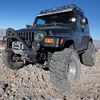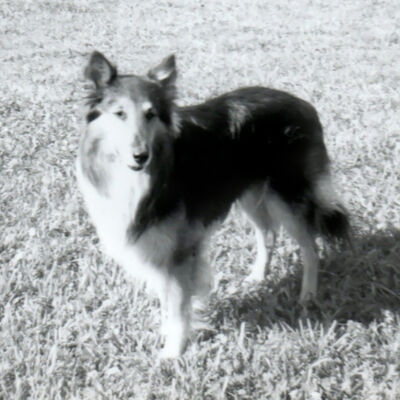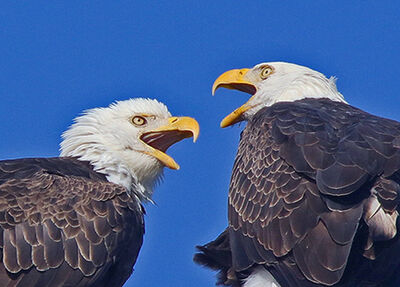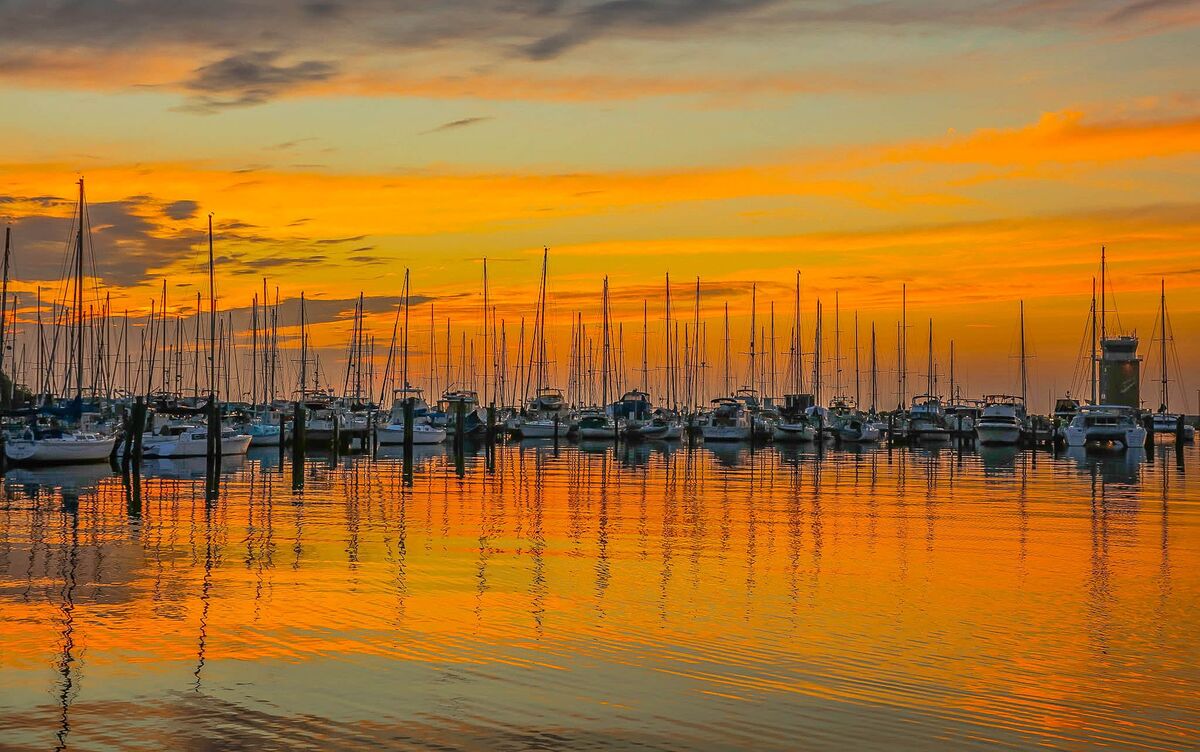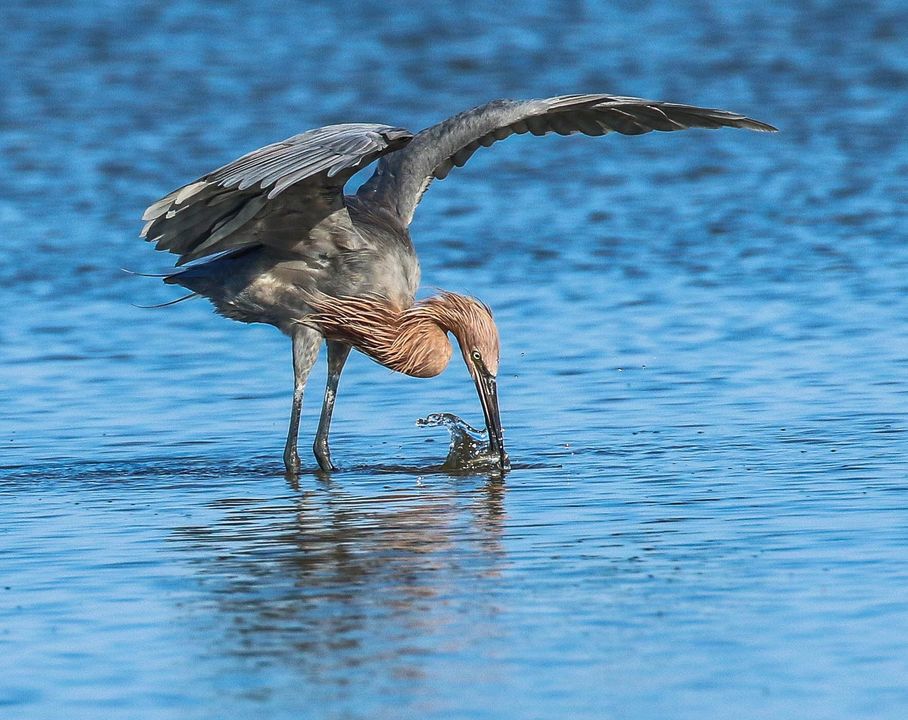Rookie Question Regarding Post Processing
Jul 24, 2022 10:03:59 #
I know this is a basic question but I don’t know the answer so please don’t respond like I’m an idiot. Keep the snark at the door. I’m pretty much a rookie regarding post processing having done some basic editing with JPEGS. If I want to teach myself more advanced techniques do I need to be shooting in raw or does a program like Luminar work with jpegs? I have two slots in my camera so I can shoot one in jpeg and one raw.
Jul 24, 2022 10:07:10 #
Jul 24, 2022 10:11:58 #
GeneinChi wrote:
I know this is a basic question but I don’t know the answer so please don’t respond like I’m an idiot. Keep the snark at the door. I’m pretty much a rookie regarding post processing having done some basic editing with JPEGS. If I want to teach myself more advanced techniques do I need to be shooting in raw or does a program like Luminar work with jpegs? I have two slots in my camera so I can shoot one in jpeg and one raw.
Raw allows you more options for editing. You can change exposure,white balance,camera controls ECT. I agree with the other post. Shoot both until you are knowledgeable enough to make a decision. I shoot in raw and use my second card as backup. Everyone makes the choice that is best for them. Shooting both all your options remain open.
Jul 24, 2022 10:16:11 #
RAW vs. JPEG is a personal preference.
RAW files have more information that can be utilized in an editor that accommodates that particular RAW file.
I don't use Luminar, so I can't offer if works with your camera's RAW or not. I use DPP for may Canon RAW files. I use Elements (and one other editor) for JPEGS from my other camera (no RAW).
Not all editors accommodate all RAW file formats.
RAW files have more information that can be utilized in an editor that accommodates that particular RAW file.
I don't use Luminar, so I can't offer if works with your camera's RAW or not. I use DPP for may Canon RAW files. I use Elements (and one other editor) for JPEGS from my other camera (no RAW).
Not all editors accommodate all RAW file formats.
Jul 24, 2022 10:18:55 #
It's up to you. All editing programs work great on JPEGs. The from-camera JPEGs have all the same pixels as the RAW files. But, the details that describe each of those pixels have been compressed into an 8-bit format, down from typically 12-bit. The further you need to edit the image, especially in the modification to the color tones (making the image much brighter or radically adjusting the white balance), here you're more likely to encounter issues in 'how far' you can adjust before running into problems due to the less data (bit-depth) of the image file.
If you're just going to press <auto> in your editor on the RAW file and call it done, how different is that edit processing than using the camera JPEGs? That same <auto> as you might be doing to your JPEGs too.
When you become a RAW photographer, you become the decision maker for these considerations in post processing, where many had been decided by the camera for the JPEG:
1. Sharpening
2. Noise Reduction
3. Color Saturation
4. Exposure adjustments, general
5. Contrast, general
6. Highlights and shadows
7. White Balance
8. Lens corrections
9. Color space
10. Pixel resolution for target image share platforms
11. Disk storage (for the larger files)
12. Image file back-up strategy (for those larger files)
You don't have to understand all these issues, but when you do, you'll be much more successful as a RAW photographer.
Personally, I think shooting JPEG+RAW is a waste of time and space. You don't get better at shooting and editing either image format, while the two versions of every image creates both version control management issues and excessive storage needs. If you work only with one file type, you can get a lot better at being successful with that file type, understanding deeply the limits and the opportunities of that format.
If you're just going to press <auto> in your editor on the RAW file and call it done, how different is that edit processing than using the camera JPEGs? That same <auto> as you might be doing to your JPEGs too.
When you become a RAW photographer, you become the decision maker for these considerations in post processing, where many had been decided by the camera for the JPEG:
1. Sharpening
2. Noise Reduction
3. Color Saturation
4. Exposure adjustments, general
5. Contrast, general
6. Highlights and shadows
7. White Balance
8. Lens corrections
9. Color space
10. Pixel resolution for target image share platforms
11. Disk storage (for the larger files)
12. Image file back-up strategy (for those larger files)
You don't have to understand all these issues, but when you do, you'll be much more successful as a RAW photographer.
Personally, I think shooting JPEG+RAW is a waste of time and space. You don't get better at shooting and editing either image format, while the two versions of every image creates both version control management issues and excessive storage needs. If you work only with one file type, you can get a lot better at being successful with that file type, understanding deeply the limits and the opportunities of that format.
Jul 24, 2022 10:21:42 #
CHG_CANON wrote:
It's up to you. All editing programs work great on... (show quote)
A good explanation!
Jul 24, 2022 10:32:31 #
GeneinChi wrote:
I know this is a basic question but I don’t know the answer so please don’t respond like I’m an idiot. Keep the snark at the door. I’m pretty much a rookie regarding post processing having done some basic editing with JPEGS. If I want to teach myself more advanced techniques do I need to be shooting in raw or does a program like Luminar work with jpegs? I have two slots in my camera so I can shoot one in jpeg and one raw.
A basic question but a very important one. YOUR answer is important to you alone. Some photographers will shoot both, others will shoot one OR the other dependent on their need. RAW is more versatile but difficult with which to process. JPEG is more of WYSIWYG. YOUR answer will be predicated on YOUR needs. As you acquire more experience your needs or desires may change but your processing abilities will hopefully improve. A mistake many beginners make is trying too many different methods of processing at one time. Find ONE that suits your fancy and learn that program inside and out. Making the image is as critical as bringing it to presentation. Nothing ruins a great photograph like bad processing.
Jul 24, 2022 10:33:59 #
GeneinChi wrote:
I know this is a basic question but I don’t know the answer so please don’t respond like I’m an idiot. Keep the snark at the door. I’m pretty much a rookie regarding post processing having done some basic editing with JPEGS. If I want to teach myself more advanced techniques do I need to be shooting in raw or does a program like Luminar work with jpegs? I have two slots in my camera so I can shoot one in jpeg and one raw.
You can edit either type of photo but jpg's will not take heavy editing - i.e. as when you are way over exposed or vise versa. There isn't enough data in a jpg for that kind of recovery or editing. But as far as doing things like color grading, slight exposure changes, sharpening, replacing a sky, spot removal or cloning, jpg's work fine.
Jul 24, 2022 10:37:47 #
kmpankopf
Loc: Mid-Michigan; SW Pennsylvania
I agree with CHG_CANON. I will add if I'm shooting something I can live with in a basic edit, I will shoot JPG. Not often. But if I shoot something that I will share with others, either here, FLICKR or blog, it will be RAW.
I usually shoot RAW only except if I will be shooting something that I will share to a target audience as soon as possible. In my case, a JPG can be shared via Snapbridge (Nikon) in the field easier than a RAW image.
I usually shoot RAW only except if I will be shooting something that I will share to a target audience as soon as possible. In my case, a JPG can be shared via Snapbridge (Nikon) in the field easier than a RAW image.
Jul 24, 2022 10:54:44 #
davidrb wrote:
A basic question but a very important one. YOUR a... (show quote)
Curious... Why is RAW more difficult to process?
I simply have a few more options in the RAW editor I use. I would not consider that "more difficult".
Jul 24, 2022 10:55:35 #
GeneinChi wrote:
I know this is a basic question but I don’t know the answer so please don’t respond like I’m an idiot. Keep the snark at the door. I’m pretty much a rookie regarding post processing having done some basic editing with JPEGS. If I want to teach myself more advanced techniques do I need to be shooting in raw or does a program like Luminar work with jpegs? I have two slots in my camera so I can shoot one in jpeg and one raw.
Raw has nothing to do with advance editing techniques. You can do the same things to a jpg as you can to a raw, in fact more, a lot more. Raw has more dynamic range needed in some rare cases where the jpg is so far off in exposure and color tones that editing a raw picture will reap better results. Re-read CHG_CANON reply, it is accurate other than all 12 of the issues he listed can easily be edited in a jpg image. Also note that a jpg image can be loaded into a raw editor and has all the same tools available as with a raw file.
If you're interested in photography, then you should be learning and perfecting editing skills, as that is a large part of photography today. Raw is not going to do much as far as learning to edit. Understanding RAW is a good idea, but just remember that the very LAST thing that makes for a good photograph is shooting in RAW.
Jul 24, 2022 10:57:50 #
Jul 24, 2022 11:00:42 #
GeneinChi wrote:
I know this is a basic question but I don’t know the answer so please don’t respond like I’m an idiot. Keep the snark at the door. I’m pretty much a rookie regarding post processing having done some basic editing with JPEGS. If I want to teach myself more advanced techniques do I need to be shooting in raw or does a program like Luminar work with jpegs? I have two slots in my camera so I can shoot one in jpeg and one raw.
If you listen to the propaganda of RAW you will feel like you are a pariah if you don't use it. I have friends with canon R5's that shoot JPEG because the file size is so large and cumbersome. If you are posting on Facebook or Instagram the files are dumbed down anyways. I shoot JPEGs because it is a waste of time. I don't want to spend so much time editing. Keep it simple stupid is my motto. JPEG works fine for me. Some JPEGs on Facebook--for me these are good enough.
Jul 24, 2022 11:09:02 #
BigDaddy wrote:
Raw has nothing to do with advance editing techniq... (show quote)
You obviously have little knowledge of what you speak. Best of luck.
Jul 24, 2022 11:09:52 #
This is a topic that comes up at least once or twice a month. I suggest you read what Chg_Canon wrote, which he cuts and pastes on every query about raw vs. jpeg, and then also take advantage of the search function of this forum. This topic often prompts 20 pages of comments and what really is about the advantages of one vs. the other and preferences.
As for me, I shoot raw for the reasons listed above. On rare occasion I will shoot raw and very small jpegs if I am going to share the photo immediately on social media. I delete all small jpegs later. With a double card, if I am on a vacation where I wont be returning, want a back up, then I use the second card for that.
As for me, I shoot raw for the reasons listed above. On rare occasion I will shoot raw and very small jpegs if I am going to share the photo immediately on social media. I delete all small jpegs later. With a double card, if I am on a vacation where I wont be returning, want a back up, then I use the second card for that.
If you want to reply, then register here. Registration is free and your account is created instantly, so you can post right away.






